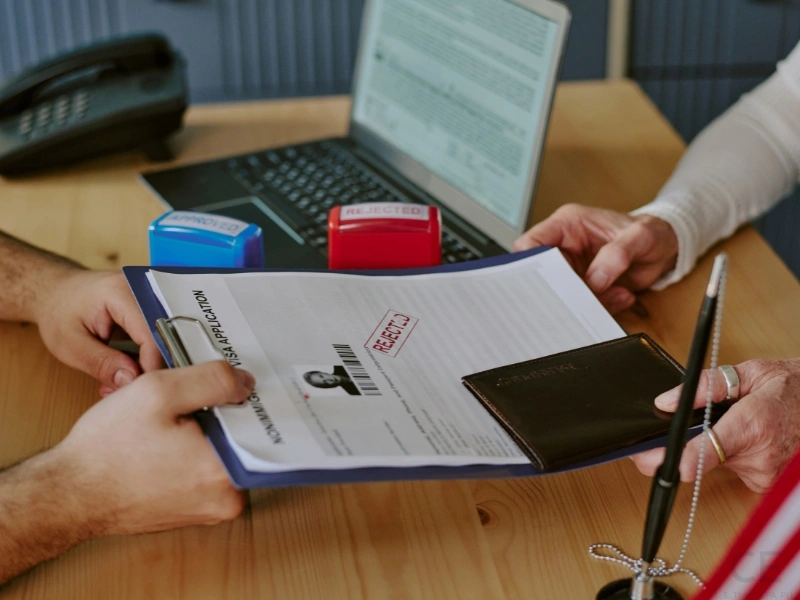
Small Business Expense Categories
Running a small business in the greater Raleigh area usually means juggling sales, operations, compliance—and careful expense tracking. This guide, created by the small business accountants at C.E. Thorn, CPA, PLLC, outlines practical small business expense categories you can use to organize spending, spot potential tax deductions, and streamline bookkeeping.
Every business' financial situation is different; therefore, these ideas are informational and may not apply to your specific company's financial facts. In order to get individualized recommendations on tax deductible business expenses or other financial tips, we recommend speaking with a trusted Raleigh CPA.
Table of Contents
What Are Small Business Expenses?
Before you label costs, it helps to align on definitions. Typical small business expenses are costs incurred to carry on your trade or business. The IRS generally looks for amounts that are “ordinary” (common for your industry) and “necessary” (helpful and appropriate for your business purposes).
Ordinary and Necessary Expenses
An ordinary expense is typical for your line of work, while a necessary cost is helpful and appropriate for your business operations. Together, these standards help you decide where an item belongs within your usual business expenses and whether it may be deductible.
Business Versus Personal
Some purchases serve both personal and business purposes. In those cases, only the business portion is generally considered a tax deductible expense. Good bookkeeping practices and clear allocation methods within your financial statements can help support accurate expense categorization.
Capital Items Versus Operating Costs
Big-ticket items—like major equipment purchases—may be capitalized and recovered over time rather than deducted immediately. Day-to-day costs, including utilities, office supplies, and marketing expenses, are typically treated as operating expenses. Your facts and current tax rules determine business expense categorization.
Core Business Expense Categories For Taxes
Use these small business expense categories to build a workable chart of accounts.
Cost of Goods Sold (COGS)

COGS captures the direct costs incurred to produce or purchase items you sell. Accurate COGS helps you calculate gross profit and taxable income appropriately:
- Direct Labor: Include wages directly tied to production to reflect true product costs.
- Inventory Purchases: Track amounts paid to acquire items held for resale; this helps match costs with sales.
- Direct Materials: Record inputs that become part of your product so margins remain reliable.
Office Expenses and Office Supplies
Office expenses keep your operation running; office supplies are the consumables you use regularly. Clear separation of these may improve reporting clarity:
- Software Expenses: Subscriptions and updates that support daily work may be categorized here or under software tools.
- Office Supplies: Items like paper, pens, and print cartridges are typically consumed quickly.
- Office Equipment: Larger items such as printers or scanners may be capitalized depending on cost and policy.

Rent or Mortgage Payments and Utilities

Your business location shapes this category for business expenses. Track occupancy costs carefully to avoid mixing personal expenses:
- Property Taxes (If Applicable): For owned business property, property taxes may be tracked separately for clarity.
- Rent or Lease Payments: Amounts paid for office, retail, or industrial space used in operations.
- Utilities: Electricity, water, trash, internet, and phone services that support business operations.
Business Insurance
Insurance premiums can be significant and may be eligible for business tax deductions when they protect the business:
- Property Insurance: Protects business property; review limits and endorsements as operations change.
- General Liability: Aimed at covering third-party claims that may arise from operations.
- Workers Compensation Insurance: Required coverage in many cases; rules vary by state and headcount.

Professional Services

Outside expertise may be essential as you grow. Fees paid to licensed providers are typically tracked here:
- Credit and Collection Fees: Third-party services that assist with billing, collections, or payment disputes.
- Accounting and Bookkeeping: Fees paid for financial statements, reconciliations, and tax return preparation.
- Legal Services: Costs incurred for contracts, employment matters, or regulatory support as needed.
Employee Wages and Benefits
Expense costs associated with employees are often a business's largest spend. Group them to see trends and manage cash flow:
- Employee Training Costs: Courses and certifications that maintain or improve skills may be appropriate.
- Employee Wages: Gross pay for employees, including hourly and salaried compensation.
- Employee Benefit Programs: Health insurance, dental, vision, and related insurance premiums as offered.

Payroll Taxes and Employer Costs

Employer-side payroll obligations should be tracked distinctly for transparency and tax planning:
- Retirement Plans: Contributions to employee retirement plans may be tracked here for visibility.
- Employer Payroll Taxes: Amounts paid for Social Security, Medicare, and unemployment as applicable.
- Employee Transportation Benefits: Transit or parking benefits provided by the employer where applicable.
Marketing Expenses
Consistent marketing can support growth and brand awareness. Capture spending to evaluate return on this common business expense category:
- Sponsorships and Events: Fees paid to participate in or host community and industry events.
- Digital Advertising: Paid search, social, and display campaigns that drive traffic and leads.
- Creative and Content: Design, photography, and copywriting services that support campaigns.

Travel, Business Meals, and Entertainment

Rules for deducting job expenses in this category change periodically, so documentation is especially important:
- Conferences and Seminars: Registration and travel to events aimed at professional development.
- Travel Costs: Airfare, lodging, and transportation for business trips with documented business purposes.
- Business Meals: Meals with clients or staff where a business discussion occurs; keep who/what/why notes.
Banking, Interest, and Fees
Small charges add up. Category business expenses by grouping interest and fees for improved analysis:
- Bank Fees: Monthly account fees and overdraft fees that occur in ordinary operations.
- Interest Paid: Interest on business loans or credit lines recorded separately from principal.
- Credit Card Processing Fees: Merchant fees deducted by processors on customer payments.
Licenses, Permits, and Professional Dues
Many industries require credentials to operate:
- Licenses And Permits: Annual renewals and permits fees paid to comply with state and local rules.
- Business Licenses: City or county registrations tied to your business location and activities.
- Professional Memberships: Industry association dues that support ongoing education and standards.
Technology and Software
Modern operations rely on cloud tools and integrations, making this a potential deductible business expense:
- Accounting Software: Subscriptions that support reconciliations, invoicing, and financial reporting.
- Expense Management Software: Tools that help categorize expenses and capture receipts on the go.
- SaaS Operations Tools: Project management, CRM, or communications platforms used by your team.
Repairs, Maintenance, and Fixed Assets
Differentiate upkeep from improvements to apply the correct tax treatment for these categorized business expenses:
- Routine Repairs: Costs to keep equipment and property in efficient working order without extending life.
- Improvements and Buildouts: Enhancements that may be capitalized depending on scope and rules.
- Depreciation: Systematic expense for capital assets; consult guidance to determine useful life.
Taxes and Government Fees
Beyond income taxes, businesses often incur other governmental charges:
- Organizational Costs: Certain formation and reorganization costs tracked for potential amortization.
- Property Taxes: Amounts assessed on business property; keep statements with your records.
- Franchise or Privilege Taxes: State- or locality-specific assessments where applicable.

Small Business Expense Categories Checklist
Use this quick list of business expenses for small business planning and monthly reviews. It is not exhaustive, but it may help you spot gaps in your financial records:
- Typical Small Business Expenses: Rent, utilities, wages, payroll taxes, insurance, supplies, and software subscriptions.
- Common Business Expenses: Professional services, marketing, travel, business meals, licenses, and permits.
- Periodic Expenses: Annual renewals, property taxes, organizational costs, and inspection fees.
- Fixed Expenses: Lease payments, insurance premiums, and software with annual contracts.
- Costs Incurred for Operations: Shipping, merchant fees, repairs, and credit and collection fees.
What Counts As Tax Deductible?
Whether expenses are tax deductible depends on facts, current small business tax law, and your company's diligence in keeping documentation. Many deductible expenses fall within the business expense categories above when they are ordinary, necessary, and properly substantiated. The amounts you deduct may reduce taxable income and, in turn, tax liability, but outcomes vary.
Credits to Consider (When Eligible)

Some businesses may also explore a tax credit where qualifications are met:
- Other Federal Tax Credit Options: Credits for energy, research, or access improvements may exist depending on facts.
- Work Opportunity Tax Credit: Incentive aimed at hiring from certain target groups; eligibility rules apply.
- New Markets Tax Credit: Complex program tied to qualifying investments; specialized guidance is typically required.
Home Office and Mixed-Use Items
If you use part of a home regularly and exclusively for business, a deduction may be available; methods vary and documentation is key. For mixed-use items—like a cell phone—track usage so you deduct business expenses related to only the business portion.
Get Professional Bookkeeping Services from a Raleigh CPA
If you are a small business owner in the greater Raleigh, NC area looking for monthly bookkeeping assistance or want help with business expense categories, C.E. Thorn, CPA, PLLC may be able to help. To see if we are a good fit for your small business bookkeeping needs, call us today at 919-420-0092 or fill out the contact form below.
Our services are tailored case-by-case, and any outcomes—such as potential tax deductions or credits—depend on your specific facts, documentation, and applicable laws at the time of filing.
Contact Form
Feel free to call our office or to complete the contact form below:
"*" indicates required fields
